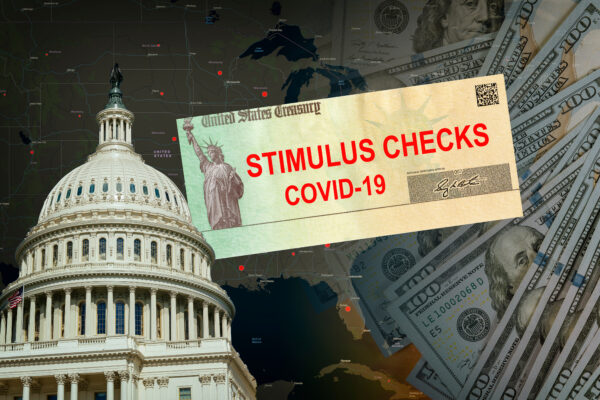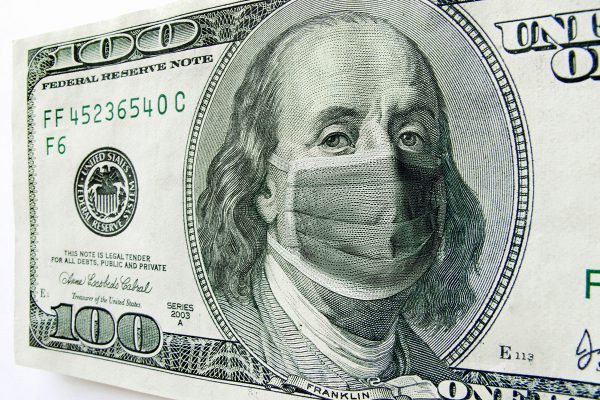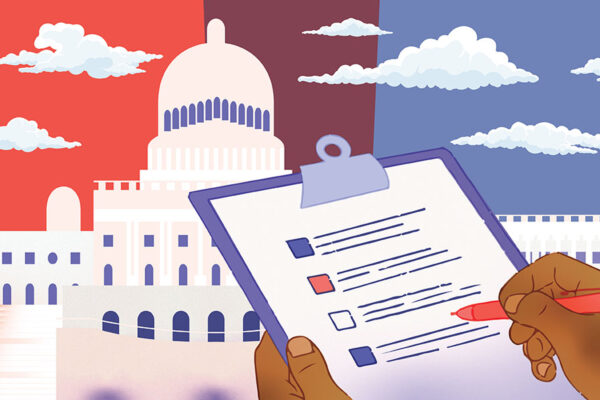On March 11 — exactly one year after the World Health Organization first declared a global COVID-19 pandemic — President Joe Biden signed the $1.9 trillion American Rescue Plan into law. The expansive economic rescue plan includes provisions to help struggling Americans, businesses and government entities.
Steven Fazzari, director of the Weidenbaum Center on the Economy, Government and Public Policy at Washington University in St. Louis, said the $1.9 trillion price tag is high, but the need is great and the relief will address critical human and economic problems over the coming months.

“The American Rescue Plan is a remarkable effort to jump-start the U.S. economy, unprecedented in scale outside of major wars,” said Fazzari, the Bert A. and Jeanette L. Lynch Distinguished Professor of Economics and professor of sociology in Arts & Sciences. “Many economists, including me, predict it will lead to very fast growth of the U.S. economy over the next year. And it provides much needed relief to American households and businesses that have struggled during this nasty pandemic.”
Fazzari shared his perspective on the economic rescue plan.
There’s always a lot of give and take with these types of bills. In your opinion, did they get it right in the end?
I believe they mostly got this right. Just before President Biden took office, I presented some thoughts on what a rescue plan should include to deal with the macroeconomic challenges of the pandemic. I emphasized four broad areas: public health spending, enhanced unemployment benefits, assistance to state and local governments, and so-called “stimulus checks” to households. The legislation the president has signed does a pretty good job in all four areas.
What would you have liked to see the plan include?
I would like to see the federal government do more to address economic inequality beyond the pandemic. I favor an increase in the minimum wage, and I am intrigued by the idea of a large and permanent child allowance. It is not surprising, however, that these longer-term structural changes are not part of a bill designed to “rescue” the economy from a severe, but (hopefully) short-term health crisis.
The $1,400 stimulus checks were one highly debated feature of the plan. In the end, Biden agreed to narrowing the eligibility to appease moderate Democrats. What are your thoughts on these payments?
Of the four big parts of the bill I have studied, this one has the lowest priority. Still, I think it’s worthwhile. The enhanced unemployment payments likely target those most affected by the economic contraction. But many Americans who may not have lost their jobs still face significant economic hardship from the pandemic. For example, think about employees who have cut back regular or overtime work hours or small business owners who are still operating, but with much reduced sales. It may be the case that many recipients of these payments do not really “need” them. But it is very hard, probably impossible, to design a policy like this to distinguish who is really in need and who isn’t. Furthermore, if the result of these payments is that the Americans who are doing reasonably well financially during the pandemic can pay down some debt or build up bank accounts, the policy will help the economy recover more quickly.
Does the bill do enough to help struggling Americans, small businesses and governments?
Well, probably not “enough” in all cases. It is very difficult to maintain viable businesses in the sectors most affected by the crisis. We will almost surely lose some of them despite the aggressive rescue policies. Household economic circumstances have been affected in many ways that will not be offset completely by these measures. But we cannot let the best be the enemy of the good. This bill, along with the measures passed last year, does more to address economic hardship across a wide swath of the population than any economic rescue attempts in U.S. history.
Even before this bill passed, American’s federal debt was set to exceed the entire U.S. economy this year for only the second time since the end of WWII. Does this concern you?
I am not concerned about the effect on the national debt. While the size of the debt relative to the economy will grow, the effect on the long-run debt-GDP ratio from these one-off policies will be temporary. The social cost of government debt is especially low these days as interest rates on government bonds are exceptionally low, mostly below reasonable expectations of inflation over the next few years. The benefits of supporting families and small businesses, and, as the pandemic recedes, bringing under-utilized productive resources back online more quickly, easily dominate costs of higher debt-GDP ratios.
Is there anything else that you would like to add?
Some economists, even some who are usually in favor of government intervention to stimulate the economy, fear this last package is too big and will “overheat” the economy and accelerate inflation. I disagree. Although the unemployment rate was low before the crisis hit last winter, the overall economy has been sluggish since the Great Recession of 2007 to 2009. It could have used some extra demand stimulus before the crisis hit, and I’m guardedly optimistic this large policy response will put the U.S. on a higher growth path rather than leading to sustained increases in inflation. I wouldn’t be surprised to see some price increases in parts of the economy that have been largely shut down during the pandemic. But I believe these effects will be short lived. Yes, there is a risk of overheating, but there is also a risk of doing too little. I believe this policy package balances costs and benefits reasonably well.


